Search
Did you mean: Midas?
Search Results
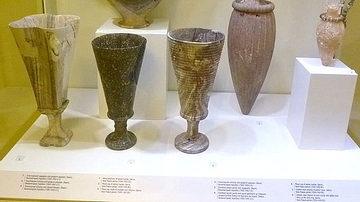
Image
Minoan Stone Vases
A range of stone vessels from Minoan Crete, 15th century BCE. (Archaeological Museum of Herakllion, Crete).
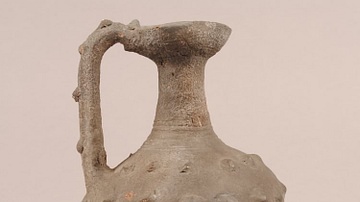
Image
Minoan Barbotine Jug
A Minoan jug in the Barbotine style where decorative excrescenses were added to the vessel, 1850-1800 BCE from Knossos. (British Museum, London).
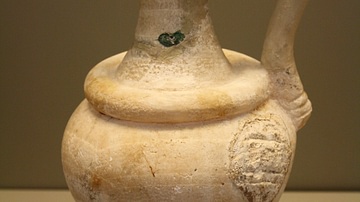
Image
Minoan Stone Jug
A Minoan alabaster jug, Crete, 15th century BCE. (National Archaeological Museum, Athens)

Article
Ancient Greek Clothing
Ancient Greek clothing developed from the Minoan Civilization of Crete (2000-1450 BCE) through the Mycenean Civilization (1700-1100 BCE), Archaic Period (8th century to c. 480 BCE) and is most recognizable from the Classical Period (c. 480-323...
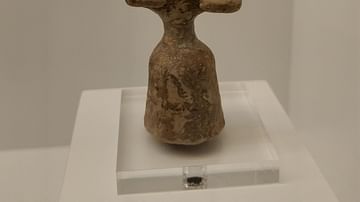
Image
Minoan Female Figurine
The figure is wearing a cylindrical skirt and is bringing her arms to her chest. Figurines of this type are known from Minoan shrines and are probably representing the Adorants. From Herakleion district, Crete. Late Minoan II-IIIA1 Period...

Image
Minoan Jug in Floral Style
Late New-Palace period (1450 BCE) clay jug with distinctive leaf pattern, from Phaistos. (Heraklion Archaeological Museum, Crete)

Image
Minoan Double Axes
Gold votive double axes, New Palace period (1600-1450 BCE), Heraklion Archaeological Museum, Crete.
The double axe, also known as 'labrys', may be the origin of the labyrinth myth of Knossos.

Image
Minoan Religious Procession on Hagia Triada Sarcophagus
Minoan limestone sarcophagus, c. 1400 BCE. Heraklion Archaeological Museum, Crete. This painting appears on one of the two longer sides of the sarcophagus. It shows a sacrificial procession, part of a funerary ritual, with a woman offering...

Image
Minoan Octopus
A Minoan octopus, detail from a New-Palace period (1500-1450 BCE) Cretan Clay askos with 'Marine Style' decoration, (Heraklion Archaeological Museum, Crete)
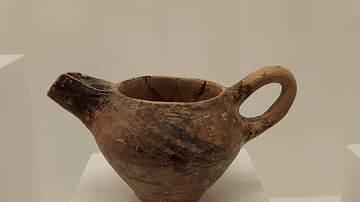
Image
Minoan One-Handled Spouted Bowl
The vase bears a black-painted linear decoration. Middle Minoan I Period (2100-1800 BCE). Made from clay. (Hellenic Museum, Melbourne, Victoria).